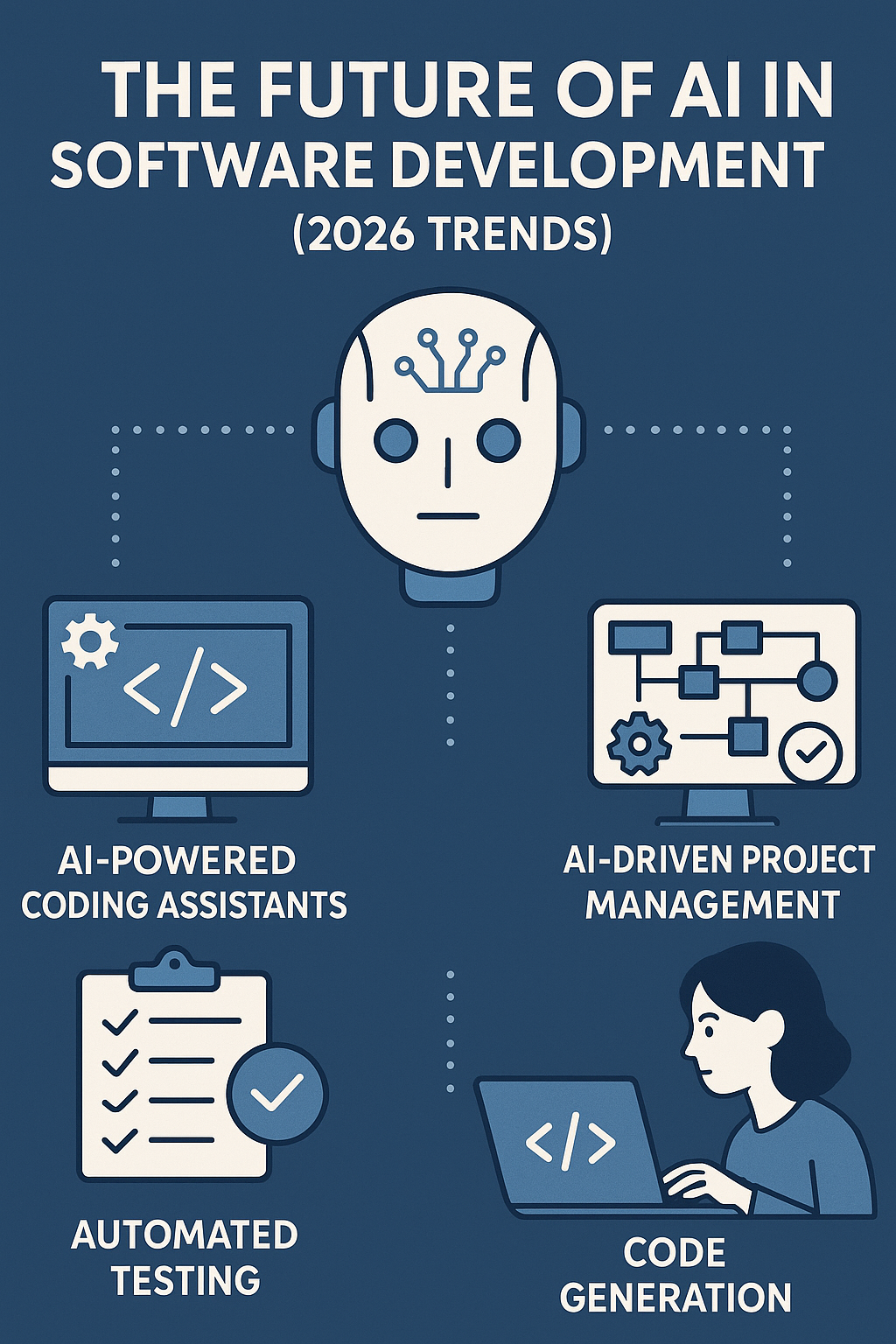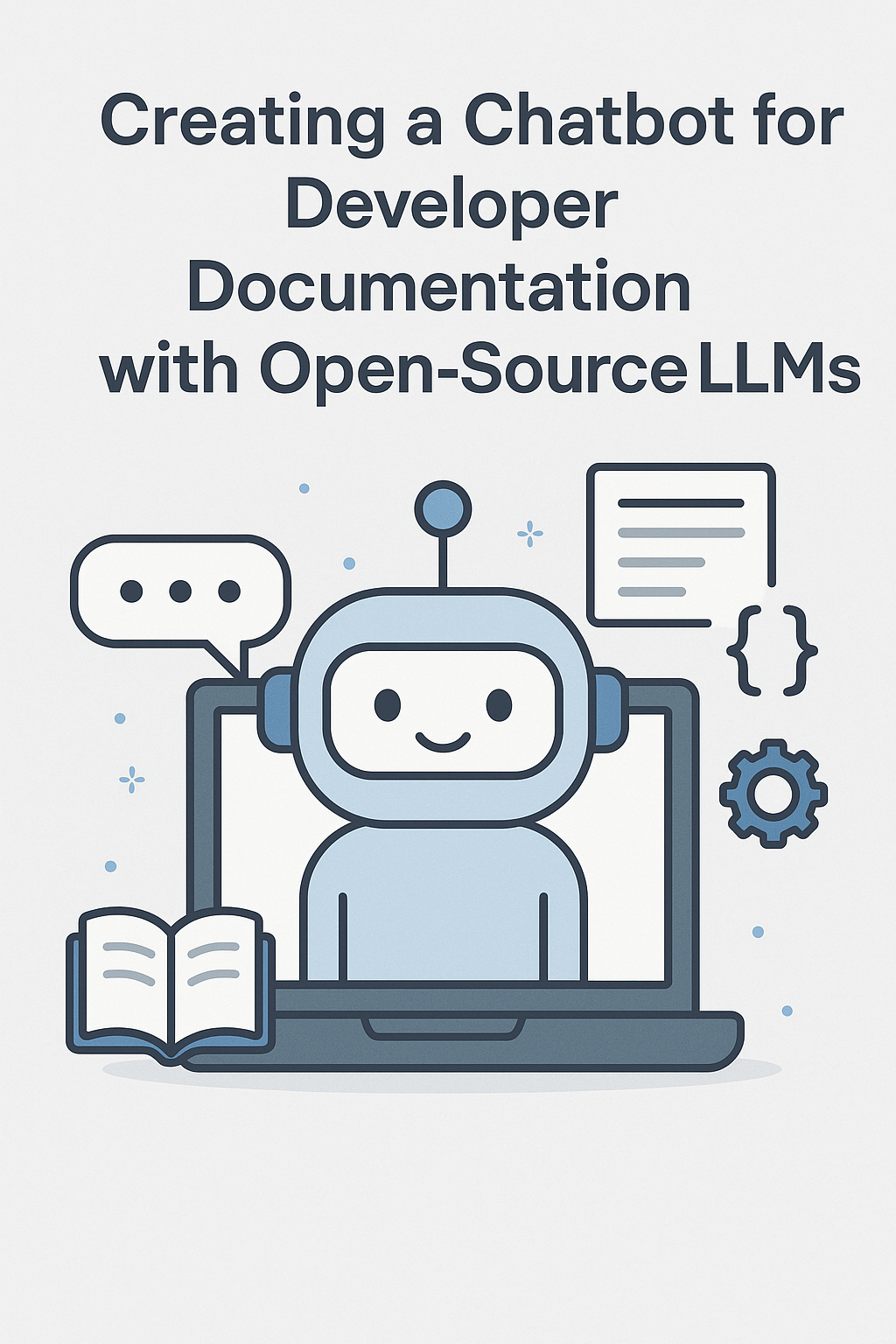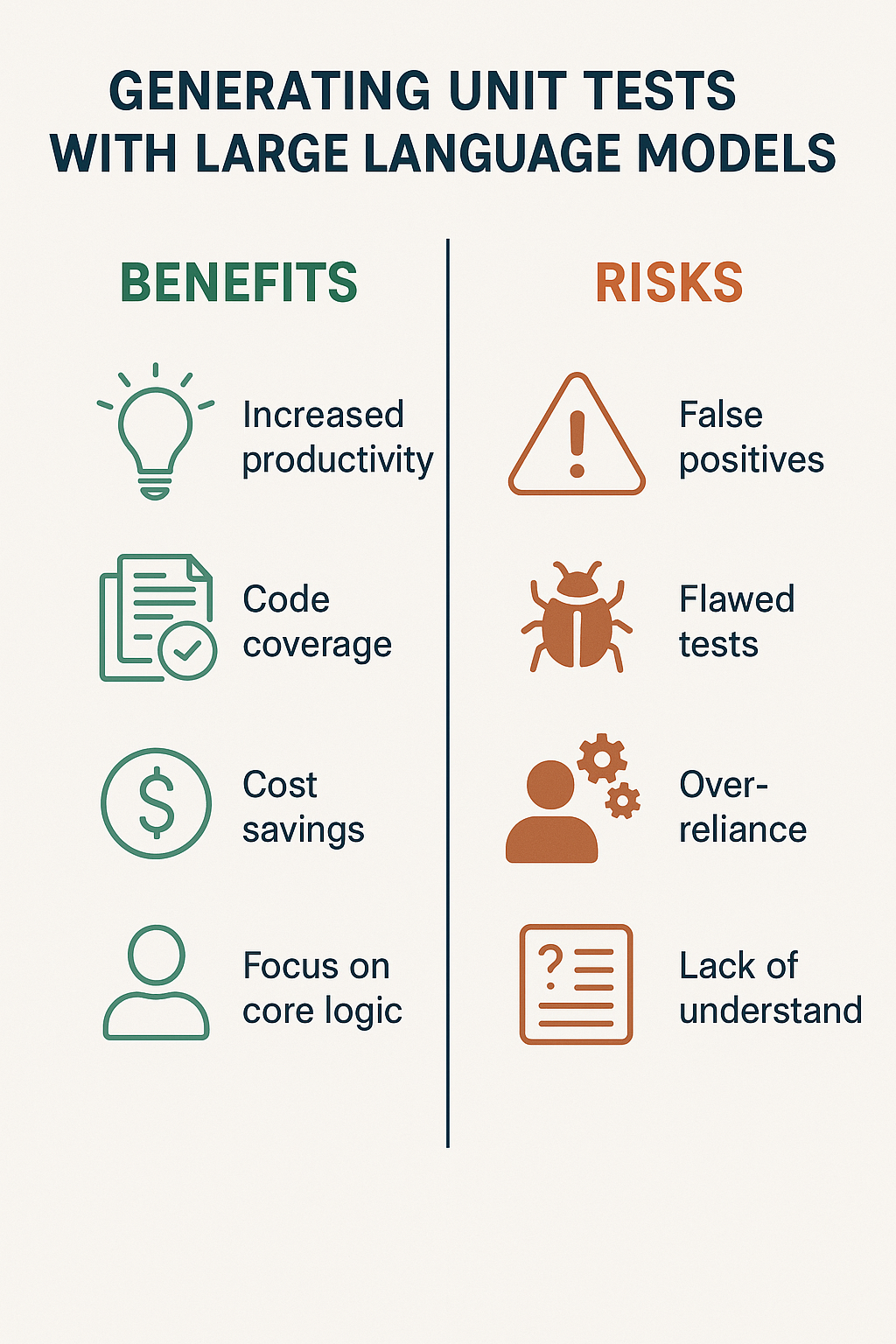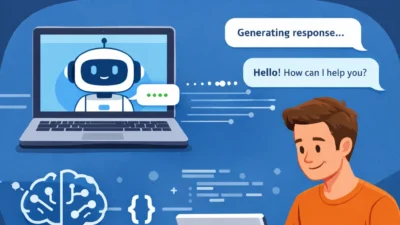
Artificial intelligence has already transformed software development with tools like GitHub Copilot, ChatGPT, and AI-powered code reviews. However, we’re still in the early stages of this transformation. What we’ve seen so far represents the foundation for far more significant changes ahead.
As we look toward 2026, AI is expected to move beyond being just a coding assistant. It will reshape how teams build, test, deploy, and collaborate on software projects. Understanding these trends helps developers prepare for opportunities and challenges in the evolving landscape.
In this post, we’ll explore the biggest AI trends in software development for 2026, examine practical implications for development teams, and discuss how to position yourself for success as AI capabilities expand.
AI as a Full Development Partner
Today’s AI tools primarily assist with code completion and simple generation. By 2026, these systems will evolve into comprehensive development partners that participate throughout the software lifecycle.
Architecture and Design Assistance
AI systems are becoming capable of analyzing requirements and suggesting architectural patterns. Instead of starting from scratch, developers will describe system requirements, and AI will generate initial architecture proposals based on similar successful systems.
This doesn’t replace architectural expertise—it augments it. Experienced architects will validate, modify, and approve AI suggestions while junior developers gain exposure to good architectural patterns they might not have discovered independently.
# Example: AI-assisted architecture generation prompt
requirements = """
- E-commerce platform with 10,000 daily users
- Real-time inventory updates
- Multiple payment provider support
- Mobile app and web frontend
- Compliance with PCI-DSS
"""
# AI would generate:
# - Recommended microservices breakdown
# - Database schema suggestions
# - API gateway configuration
# - Security layer architecture
# - Deployment topology options
Documentation Generation
Documentation often becomes outdated because maintaining it manually is tedious. AI tools are learning to generate and update documentation by analyzing code changes, commit messages, and pull request descriptions.
By 2026, expect documentation to become a byproduct of development rather than a separate task. API documentation, architecture decision records, and onboarding guides will update automatically as code evolves.
Code Review Enhancement
AI-powered code review is moving beyond style checking. Advanced systems analyze business logic, identify potential bugs, suggest performance improvements, and flag security vulnerabilities before human reviewers see the code.
This creates a two-tier review process: AI handles mechanical checks and obvious issues, freeing human reviewers to focus on architectural decisions, business logic validation, and knowledge transfer.
Automated Testing and QA Transformation
Testing is perhaps the area where AI will have the most immediate practical impact. The combination of code understanding and test generation capabilities creates significant efficiency gains.
Intelligent Test Generation
AI-driven test generation is becoming standard practice. Instead of manually writing every test case, developers will review and refine AI-generated tests. This shift changes the testing workflow fundamentally.
# Traditional approach: Write tests manually
def test_calculate_discount():
assert calculate_discount(100, 10) == 90
assert calculate_discount(100, 0) == 100
# Developer must think of edge cases
# 2026 approach: AI generates comprehensive test suite
# Human reviews and approves
class TestCalculateDiscount:
# AI generates these based on function analysis
def test_standard_discount(self): ...
def test_zero_discount(self): ...
def test_maximum_discount(self): ...
def test_negative_price_raises_error(self): ...
def test_discount_exceeds_100_raises_error(self): ...
def test_float_precision_handling(self): ...
def test_concurrent_calculation_safety(self): ...
The key insight is that AI catches edge cases developers might miss due to familiarity blindness. For deeper exploration of this topic, see our guide on Generating Unit Tests with Large Language Models.
Visual Testing Automation
Visual regression testing traditionally requires manual baseline management and careful threshold tuning. AI-powered visual testing understands what constitutes intentional changes versus bugs, reducing false positives dramatically.
Systems can now identify that a button moved slightly due to a design update (intentional) versus rendered incorrectly due to CSS conflicts (bug), without explicit human labeling for every scenario.
Test Maintenance
One of testing’s biggest pain points is maintenance—tests break when code changes, even when functionality remains correct. AI tools are learning to update tests automatically when they detect that failures result from refactoring rather than bugs.
Smarter DevOps Pipelines
DevOps pipelines will become more autonomous and self-optimizing. AI brings intelligence to what has traditionally been rule-based automation.
Predictive Pipeline Optimization
CI/CD pipelines often run the same tests regardless of what changed. AI systems analyze which tests are most relevant to specific changes and prioritize them, providing faster feedback while maintaining coverage.
# Traditional pipeline: Run everything
stages:
- unit_tests # 5 minutes
- integration # 15 minutes
- e2e_tests # 30 minutes
- deploy
# AI-optimized pipeline: Intelligent test selection
stages:
- ai_analysis: # Analyze changed files
output: relevant_tests
- prioritized_tests: # Run most relevant first
tests: $relevant_tests.critical
- deploy_preview # Fast feedback
- full_test_suite: # Complete coverage
parallel: true
tests: $relevant_tests.all
Intelligent Incident Response
When production issues occur, AI systems correlate deployment logs, code changes, monitoring data, and historical incidents to suggest probable causes and remediation steps. This reduces mean time to resolution (MTTR) significantly.
Infrastructure Optimization
Cloud costs remain a significant concern for many organizations. AI-powered infrastructure management analyzes usage patterns and suggests rightsizing, spot instance opportunities, and architectural changes that reduce costs without sacrificing performance.
Natural Language Programming
The interface between developers and code is shifting. Natural language is becoming a legitimate programming interface, not just for beginners but for experienced developers seeking efficiency.
Feature Scaffolding
Developers will increasingly describe features in natural language, and AI will scaffold initial implementations. This isn’t about replacing programming knowledge—it’s about removing boilerplate friction.
// Developer prompt:
// "Create a user authentication flow with email verification,
// password reset, and OAuth support for Google and GitHub.
// Use our existing User model and email service."
// AI generates:
// - Route definitions
// - Controller logic
// - Email templates
// - Database migrations
// - Test scaffolds
// - Documentation stubs
// Developer then reviews, customizes, and refines
Query Generation
Database queries are already benefiting from natural language interfaces. Complex SQL or ORM queries can be generated from descriptions, reducing errors and speeding up data access layer development.
Configuration Management
Infrastructure-as-code configurations (Terraform, Kubernetes manifests, Docker Compose) can be generated from high-level descriptions. Developers specify what they need, and AI produces compliant, secure configurations.
AI for Security and Compliance
Security is evolving from periodic audits to continuous, AI-powered monitoring. This shift catches vulnerabilities earlier and reduces the burden on security teams.
Real-Time Vulnerability Detection
AI continuously scans code for security vulnerabilities, identifying issues as code is written rather than during later audits. This includes not just known vulnerability patterns but also novel issues that static analysis tools miss.
Dependency Risk Analysis
Modern applications have hundreds of dependencies. AI tools assess not just known vulnerabilities but also maintenance health, license compliance, and potential supply chain risks. They recommend safer alternatives when risks are identified.
Compliance Automation
Regulatory compliance (GDPR, HIPAA, SOC2) requires specific coding practices and documentation. AI tools understand these requirements and flag code that violates compliance rules before it reaches production.
Personalized Developer Assistants
Generic AI assistants are useful, but they lack context about your specific codebase, coding standards, and architectural decisions. This is changing.
Codebase-Trained Models
Organizations will train or fine-tune models on their own codebases. These custom GPT models understand your naming conventions, architectural patterns, internal libraries, and coding standards.
When a developer asks for help implementing a feature, the assistant suggests implementations that match your existing patterns rather than generic solutions that require significant adaptation.
Context-Aware Suggestions
Future assistants will understand the broader context of what you’re building. They’ll track your current task, recent code changes, and relevant documentation to provide more targeted assistance.
Team Knowledge Capture
AI can capture and distribute team knowledge more effectively. When a senior developer explains a complex concept in code review, that knowledge becomes available to the AI assistant for future similar questions.
Opportunities AI Creates
The expansion of AI capabilities creates significant opportunities for developers who adapt effectively.
Faster Development Cycles
Automation of routine tasks—boilerplate generation, test writing, documentation—lets developers focus on solving novel problems. Teams shipping faster while maintaining quality gain competitive advantages.
Reduced Technical Debt
AI-driven refactoring suggestions and test generation make addressing technical debt more feasible. What previously required dedicated “cleanup sprints” becomes continuous improvement integrated into regular development.
Accessibility for New Developers
AI lowers the barrier to entry for programming. New developers can be productive faster while learning fundamentals. This expands the talent pool and makes technology more accessible.
Focus on Higher-Value Work
As AI handles routine coding tasks, developers can focus on system design, user experience, and solving complex business problems—work that creates more value and is more intellectually satisfying.
Challenges to Prepare For
The AI transformation also brings challenges that require thoughtful navigation.
Skill Atrophy Risk
Over-reliance on AI could weaken fundamental problem-solving skills. Developers who always accept AI suggestions without understanding them may struggle when AI fails or produces incorrect output.
Mitigation: Treat AI as a collaborator, not an oracle. Understand why suggestions work, not just that they do.
Data Privacy Concerns
Ethical and security concerns around proprietary data in training models are significant. Sending sensitive code to external AI services may violate security policies or regulatory requirements.
Mitigation: Understand your AI tools’ data handling policies. Consider self-hosted solutions for sensitive codebases. For ethical considerations in AI coding tools, read our post on Ethical AI in Code Generation.
Quality Control
Not all AI suggestions align with project goals. AI optimizes for patterns it has learned, which may not match your specific requirements or constraints. Quality control requires human judgment.
Mitigation: Establish review processes for AI-generated code. Define clear acceptance criteria beyond “it compiles and tests pass.”
Adoption Costs
Advanced AI infrastructure has costs—financial (API usage, compute), organizational (training, workflow changes), and technical (integration, maintenance).
Mitigation: Start with high-ROI use cases (test generation, documentation) before expanding to more complex applications.
Preparing for 2026
Developers can take concrete steps now to prepare for AI’s expanding role.
Build AI Collaboration Skills
Learn to write effective prompts, validate AI output, and integrate AI tools into your workflow. These skills become increasingly valuable as AI capabilities grow.
Strengthen Fundamentals
Paradoxically, AI makes fundamentals more important, not less. Understanding algorithms, data structures, and system design helps you validate AI suggestions and handle situations where AI falls short.
Stay Current
AI tools evolve rapidly. What’s impossible today may be routine next year. Follow developments, experiment with new tools, and update your practices accordingly.
Conclusion
The future of AI in software development is not about replacement—it’s about augmentation. By 2026, AI will function as an active team member, contributing to coding, testing, DevOps, security, and documentation.
Success depends on balance: leveraging AI for speed and efficiency while maintaining human expertise for judgment, creativity, and complex problem-solving. Developers who master this balance will thrive as AI capabilities expand.
If you want to see how AI is already shaping today’s workflows, check out our post on AI-Powered Pair Programming.


